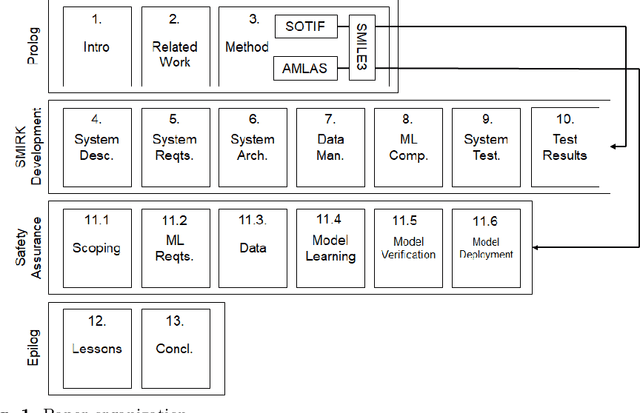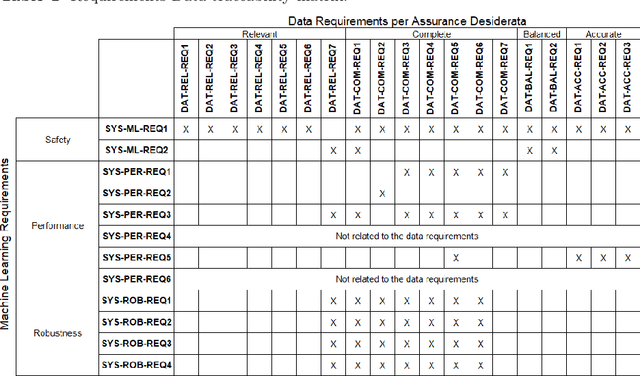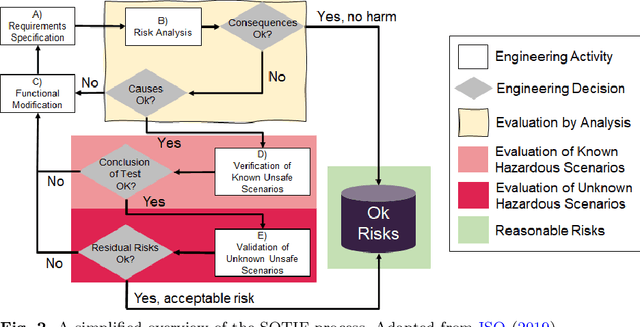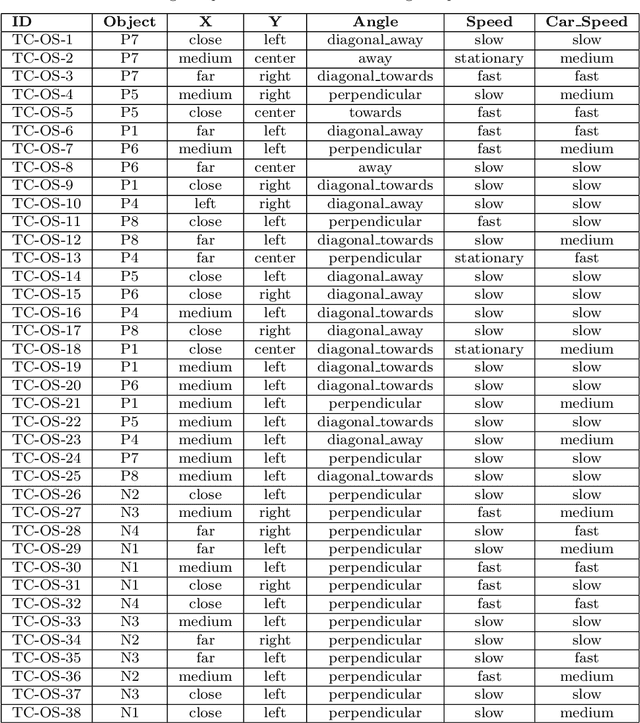Olof Lennartsson
Ergo, SMIRK is Safe: A Safety Case for a Machine Learning Component in a Pedestrian Automatic Emergency Brake System
Apr 16, 2022



Abstract:Integration of Machine Learning (ML) components in critical applications introduces novel challenges for software certification and verification. New safety standards and technical guidelines are under development to support the safety of ML-based systems, e.g., ISO 21448 SOTIF for the automotive domain and the Assurance of Machine Learning for use in Autonomous Systems (AMLAS) framework. SOTIF and AMLAS provide high-level guidance but the details must be chiseled out for each specific case. We report results from an industry-academia collaboration on safety assurance of SMIRK, an ML-based pedestrian automatic emergency braking demonstrator running in an industry-grade simulator. We present the outcome of applying AMLAS on SMIRK for a minimalistic operational design domain, i.e., a complete safety case for its integrated ML-based component. Finally, we report lessons learned and provide both SMIRK and the safety case under an open-source licence for the research community to reuse.
Exploring the Assessment List for Trustworthy AI in the Context of Advanced Driver-Assistance Systems
Mar 04, 2021


Abstract:Artificial Intelligence (AI) is increasingly used in critical applications. Thus, the need for dependable AI systems is rapidly growing. In 2018, the European Commission appointed experts to a High-Level Expert Group on AI (AI-HLEG). AI-HLEG defined Trustworthy AI as 1) lawful, 2) ethical, and 3) robust and specified seven corresponding key requirements. To help development organizations, AI-HLEG recently published the Assessment List for Trustworthy AI (ALTAI). We present an illustrative case study from applying ALTAI to an ongoing development project of an Advanced Driver-Assistance System (ADAS) that relies on Machine Learning (ML). Our experience shows that ALTAI is largely applicable to ADAS development, but specific parts related to human agency and transparency can be disregarded. Moreover, bigger questions related to societal and environmental impact cannot be tackled by an ADAS supplier in isolation. We present how we plan to develop the ADAS to ensure ALTAI-compliance. Finally, we provide three recommendations for the next revision of ALTAI, i.e., life-cycle variants, domain-specific adaptations, and removed redundancy.
 Add to Chrome
Add to Chrome Add to Firefox
Add to Firefox Add to Edge
Add to Edge